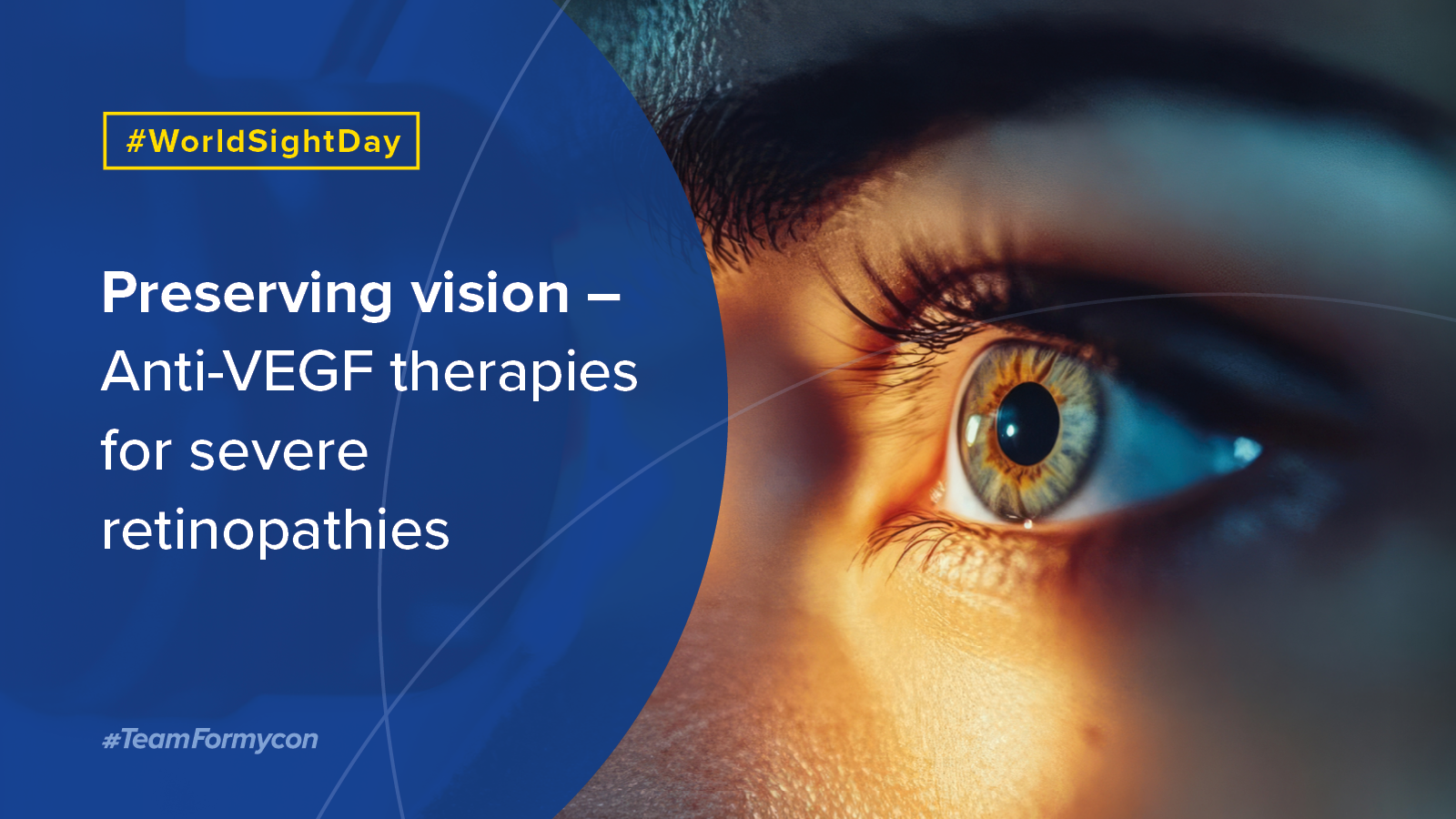Preserving vision – Anti-VEGF therapies for severe retinopathies

👁️ On World Sight Day, we we are turning our attention to retinopathies, in other words: diseases of the retina that can be responsible for severe visual impairment and even blindness. While age-related macular degeneration – as the name suggests –mainly affects the elderly, diabetic retinopathies are the most common cause of blindness in people of working age. Around 540 million people worldwide live with diabetes – and the number is constantly rising. One of the most serious consequences is the development of a diabetic retinopathy. Around one in three people with diabetes develops some form of this retinal damage during the course of their condition.
💡 What does this mean for those affected?
Retinopathies often go unnoticed at first, but if left untreated, they can lead to severe vision loss. For patients, this is often associated with major impairments, loss of quality of life and stress at work and in their personal environment.
👁️🗨️ Treatment options
If detected early, the chances of successful treatment are now better than ever – for example, with anti-VEGF therapies. They stop the pathological formation of new blood vessels in the retina and can significantly slow down the progression of the disease. However, these often very expensive treatments are not yet available to all patients.
🎯 Improving access to anti-VEGF therapies
Formycon has made it its mission to improve access to such therapies worldwide. With Formycon’s ranibizumab biosimilar FYB201, an effective and cost-effective treatment option is already available in many countries. A further Formycon biosimilar product will complement the treatment spectrum: FYB203/aflibercept has already been approved in several regions and is waiting in the wings, so to speak. Together, the two agents cover a significant share of anti-VEGF therapies.
Learn more about Formycon’s biosimilars here.
#TeamFormycon #Biosimilars #Ophthalmology #VEGF #nAMD #DR #DME